A judge in California, the daughter of immigrants, will rule on Trump’s family detention policy
Attorney General Jeff Sessions filed a motion in federal court Thursday to request “limited emergency exemptions” to longstanding rules governing the detention of immigrant children apprehended at the border. The request, a followup of sorts to President Trump’s executive order on family separation, essentially seeks the court’s blessing to suspend compliance with a settlement that limits where ICE can detain immigrants younger than 18 — and for how long.
In the executive order ending his administration’s own policy of taking away the children of parents who cross the border illegally, Trump blamed Congress for not passing legislation to supersede the 1997 consent decree known as the Flores Settlement Agreement. The Flores agreement, in its current form, would prohibit the scenario envisioned under the executive order: the indefinite detention of entire families, including children, until the adults are eligible to be released from custody.
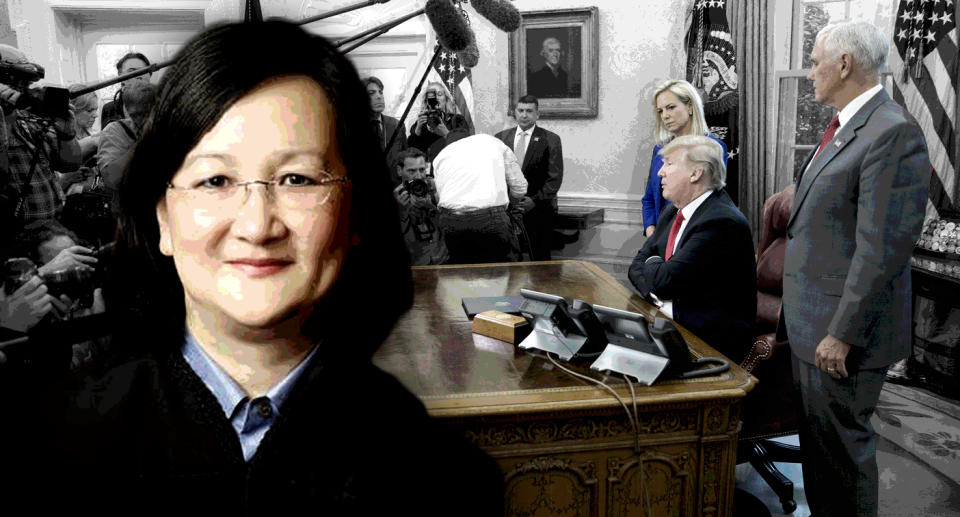
Pending such action on Capitol Hill, the order called for Sessions to request that the U.S. District Court for the Central District of California modify Flores “in a manner that would permit the Secretary, under present resource constraints, to detain alien families together throughout the pendency of criminal proceedings for improper entry or any removal or other immigration proceedings.”
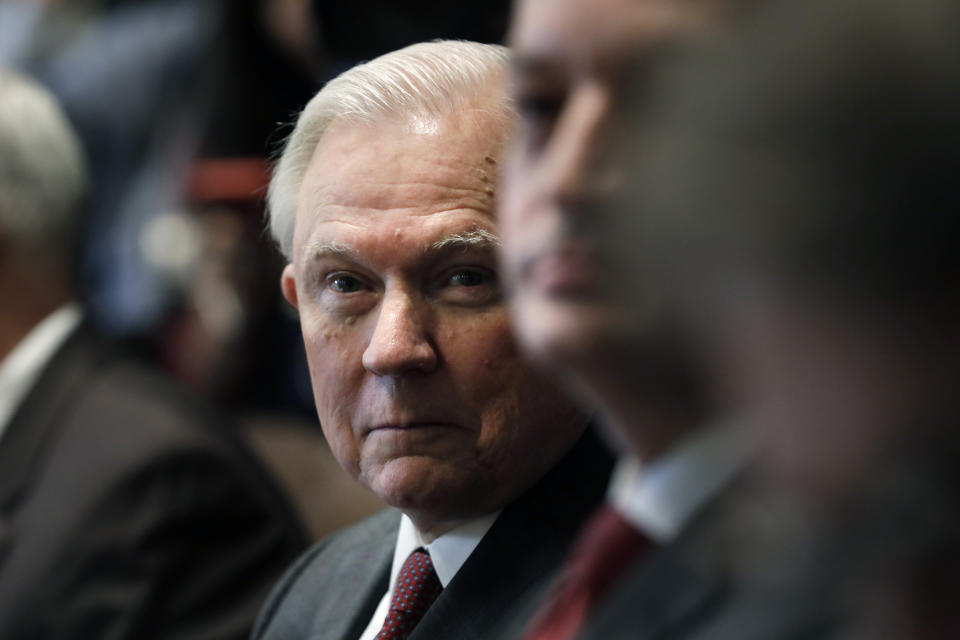
On the receiving end of Sessions’s request is U.S. District Court Judge Dolly M. Gee, whose record in the Central District of California includes upholding the Flores agreement against previous attempts to circumvent it. In fact, it was Gee who set the legal precedent that stands between the Trump administration and family detention, ruling in a 2015 decision against the Obama administration that all immigrant children — not just those who entered the country unaccompanied — are protected under Flores.
Gee, the daughter of Chinese immigrants, became the first Chinese-American woman to serve as a federal district court judge after the Senate unanimously confirmed her appointment by then-President Barack Obama in 2009. But she proved to have no problem asserting her independence from the president who appointed her when, in response to an influx of mostly Central American children and families over the southwest border in 2014, his administration began housing migrant mothers and their children together in family detention centers in Texas.
Gee found that the heavily secured family detention centers, which were run by private prison contractors, violated the Flores agreement’s requirements that minors be placed in the least restrictive settings possible and in facilities that are licensed by the state to care for children. In her ruling, Gee accused officials of ignoring the “unambiguous” terms of the Flores agreement and described the administration’s claim that family detention was necessary to deter illegal border crossing — an argument echoed by Sessions in his motion Thursday — as “unpersuasive” and “dubious.” She ordered that children and their mothers be released from both facilities immediately.
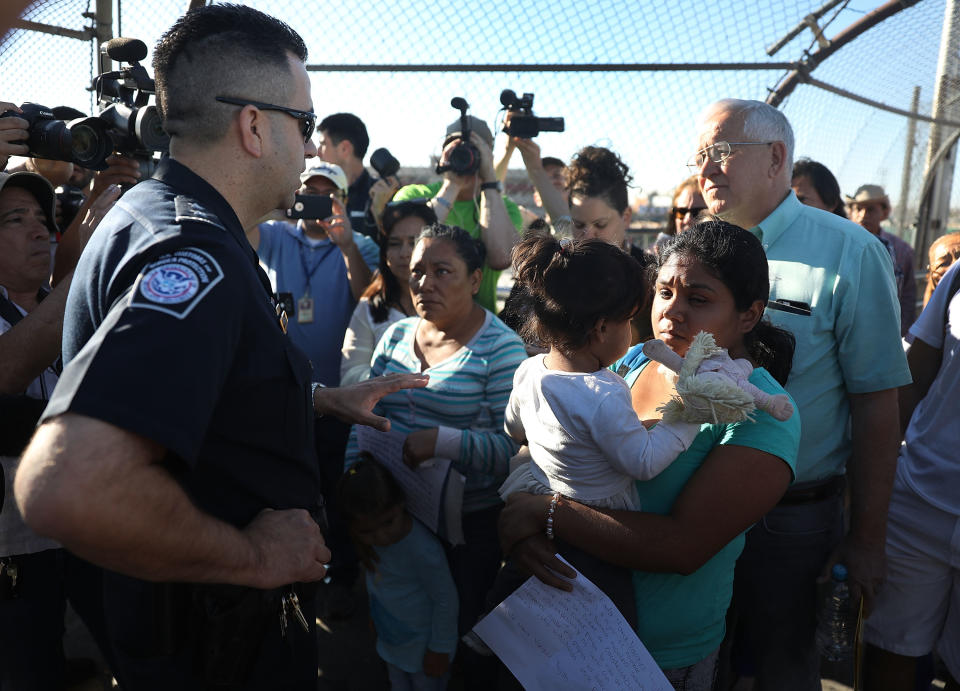
Gee has continued to weigh in on immigration-related cases under the Trump administration.
In January of last year, Gee was one of the first judges to overrule actions taken under the first iteration of President Trump’s travel ban, ordering the readmission of an Iranian who had been detained at the Los Angeles airport and deported despite having a green card. Last June, Gee once again turned to Flores, ordering that a juvenile coordinator be appointed to monitor the conditions at Border Patrol stations and temporary detention centers that house families in the Rio Grande Valley, after finding that the facilities still failed to comply with the standards of the 1997 consent decree.
In the latest episode of Yahoo News’s Skullduggery podcast, former Homeland Security Secretary Jeh Johnson, who was one of the architects of the Obama administration’s controversial family detention policy, said he could not predict how Gee would respond to Sessions’s motion. He noted, however, that Trump’s executive order effectively acknowledges that the Flores agreement is still the law, and that it must be modified or suspended to permit the detention of entire families.
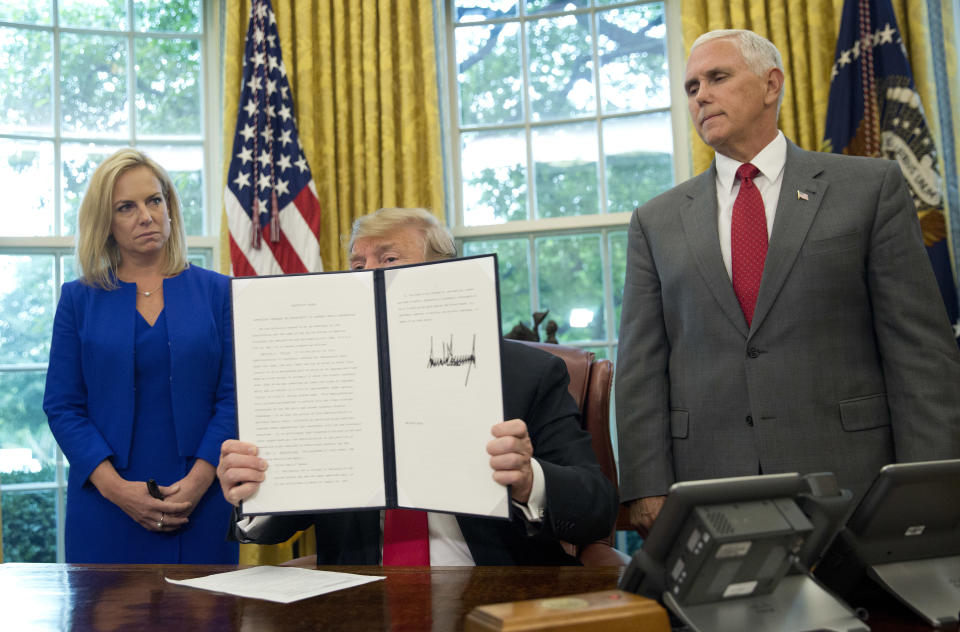
For months, immigration lawyers and advocates have feared the Trump administration would attempt to dismantle the Flores settlement, which Sessions and Homeland Security Secretary Kirstjen Nielsen blamed for requiring that children be taken away from their parents. Under the “zero-tolerance” policy implemented by Sessions in April, adults who cross the border illegally are jailed, but under Flores, their children cannot be put in jail with them or held for longer than 20 days.
But the administration preferred to put the onus to act on Congress. In a statement released alongside Sessions’ court filing Thursday, a Justice Department spokesman said, “Irrespective of the Court’s decision in Flores, it is incumbent for Congress to finally act to keep families together, end catch and release, and create the foundation for an immigration system that serves the national interest.”
“President Trump took decisive action to address the immediate issue of detaining families together for as long as he can legally do so under Flores, and now the onus is on Congress to pass the necessary legislative fix,” said RJ Hauman, government relations director at the Federation for American Immigration Reform, or FAIR, a pressure group for immigration limits. “Unless Congress acts, the government can only detain families together for 20 days, then we’re back to square one.”
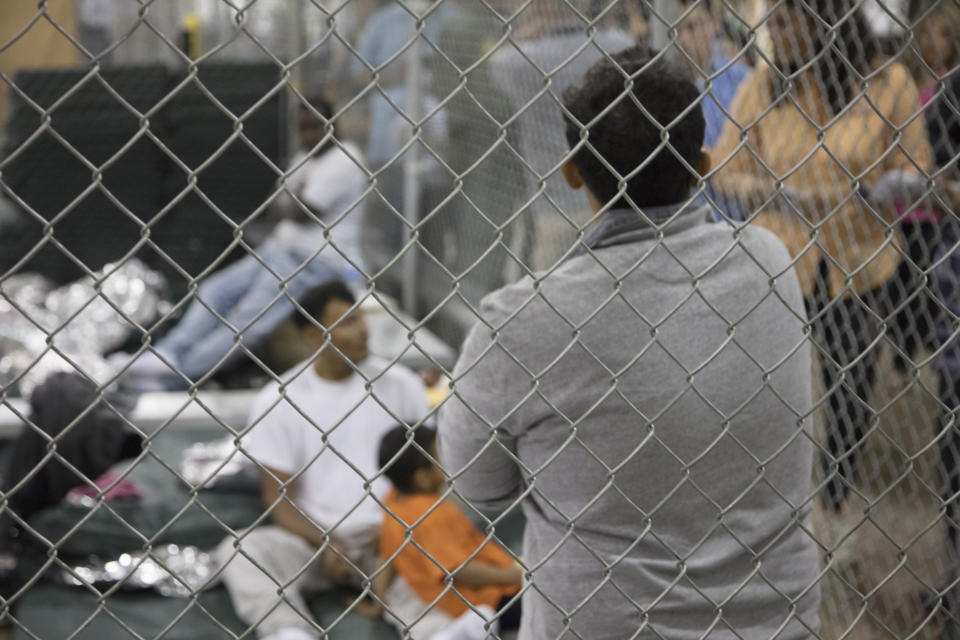
A deputy clerk denied Yahoo News’ request to speak to Gee for this story, noting, “The Court does not give interviews on its pending cases.” But immigration lawyers appeared confident that the 20-year-old Flores agreement would withstand yet another challenge.
“This Administration is setting itself up for yet another loss in federal court,” said Jeremy McKinney, a North Carolina-based immigration attorney and member of the American Immigration Lawyers Association. “The decision does not take away the government’s ability to exercise its discretion. Rather, it provides the contours for detention practices amounting to an abuse of discretion.”
McKinney said that families can be held together in certain circumstances, “if it is based on an individualized analysis of the child’s circumstances and family detention is in the best interests of the child.” However, he predicted that any attempts to implement mass family detention as a means of deterrence would be rejected once again.
“These are human beings we are talking about, and they deserve better,” he said. “We anticipate the courts will agree.”
_____
Read more from Yahoo News:
Key Democrat: Trump advisers were ‘lying through their teeth’ when testifying about Russia contacts
Stephen Miller, meet your great-grandfather, who flunked his naturalization test
Businesses have made millions off Trump’s child separation policy
The dominance game, as played by dictators and other animals
Democrats look to gain in Southern California as outrage mounts over family separations
Photos: Melania Trump makes surprise visit to migrant child facility in Texas


